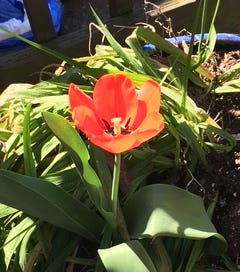bunen = need. aushven = want. (aushveri = desire.)
sonaukitho = a direction. (sonau = to lead/direct. sonautu = a leader/director.) “In aushvan kaf makresh” = I want to go home. “In bunen sonaukitho nei kafthim makresh” = I need direction(s) for going home. (The literal plural form of “direction” is “sonaukithox,” but this is only used when referring to more than one *set* of directions.) “Ikan in kaf makresh?” = How (do) I go home?
sro = up(wards). nuro = down(wards). keiro = towards/forwards. gauiro = backwards. turo = left. duro = right. uye = here. tinye/tunye = there. guye = from.
pei = to turn. danzakafum (or “daka”) = east. danzadifum (or “dadi”) = west. kernfum = north. gauinfum = south.
“America muh danzakafum guye uye” = America is east from here. “Tia en te vam tyunbannin Wonrigos” = It is in the land named Wonrigos. (That is, America in the Human Realm is “parallel” to a stretch of land in the Dust Realm continent of Wonrigos.) “Inna makresh muh gauinfum-daka guye uye” = My house is south-east from here.
auwan = a way. “Inna makresh muh tin auwan!” = My home is this way!
“Te auwan nei kaf muh tun auwan” = The way to go is that way. Nei (or the suffix “-na”) is the indicator that the next word “belongs” to the word that came before it. “Kwei” is used to refer to methods. If you say, “te auwan kwei kaf muh tun auwan,” Dustities would think you’re talking about *how* to go that way, not where the way is.
In short: “kwei” is methodical to/for, “nei” is directive to/for.
“Tsuna auwan” = “Your way.” “auwan nei tsu” = a way for you. “Inna ema nei tsu” = my love for you.
Describing Places
aukret = a place/location. gyawukresh = a building. aukresh = room/chamber.
tyade = to gather/meet (a word exclusively used for people. “tuode” = to gather (objects/animals)). tyadethim = gathering. “Zaina tyadethimo” = a group of Humans. (suthi tuodethimo = a group of stones. manazi tuodethimo = a herd of animals. Yarzatyu tyadethimo = a group of Dustities.) tyadethimkare = a society/community/civilization. (tyadethimkaretu = a civilian.)
nutivam = territory. (nutimun = property/possession.) gyawuh = to settle. gyawuthimkare = a settlement. gyawudethim - village. gowudethim = a town. sedi = city (a loan word).
“In aushven tyade tsu dyu te sedi” = I want to meet you at the city. “Tyade tsu en te gowudethim” = Meet you in the town. “In bunen kaf tun gowudethim thusabe” = I need to go to that town tomorrow. (You might have noticed kwei/nei were omitted: they don’t have to be said in statements about known directions.)
“Ikan tsu kwei kaf te gyawukresh?” = How do you go to the building? (Kwei/nei must be included in questions.)
“Tin muh inna makresh” = This is my house.
tyadethim aukresh = “meeting room” = living room. sheve aukresh = bedroom. gwimkresh = “washroom” = bathroom. (gwim = to wash.) daidokoro = kitchen. garaj = garage. kakankresh = workshop/office.
auregekresh = attic. yaregekresh = basement. nutigyuthimna aukresh = “storage room.” (nutigyu = to store.) nutigyushe = a shed. (gowanutigyushe = warehouse.)
aurege = over/above. yarege = below/under. keiau = through.
zokret = a yard/clearing. gauirona zokret = back yard. thufenna zokret = front yard. (thufen = front (area).)
Other useful words: kutun = to close. ratin = to open. kutunu = closed. ratinu = open. aufen = top. yahen = bottom. ochakresh = “tearoom” = diner/restaurant/cafe. krewe = a space. tyunna krewe = personal space. tyadethimu = public. ubyuthimu = private. tyadethei = together. tuodethei = gathered.




